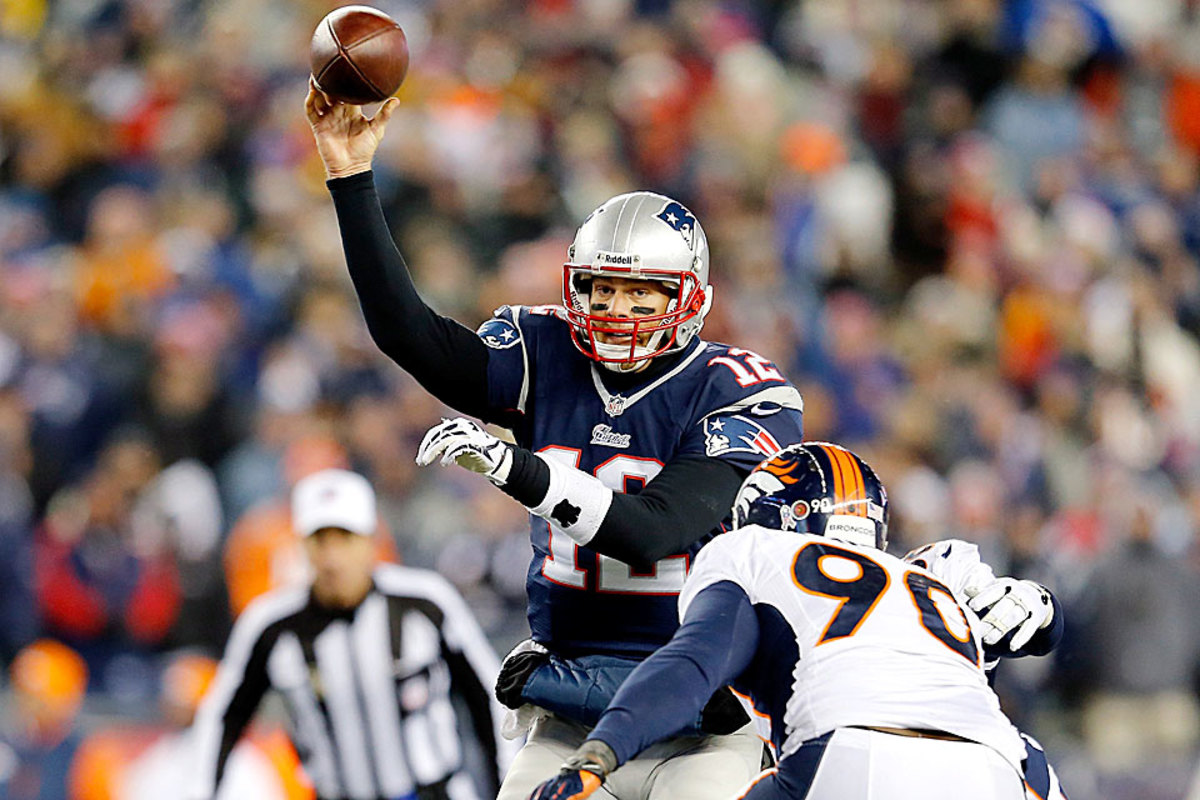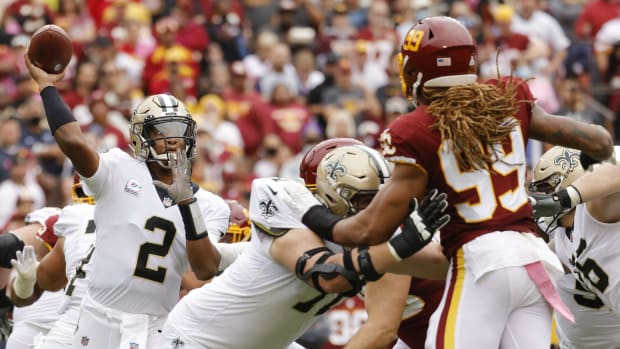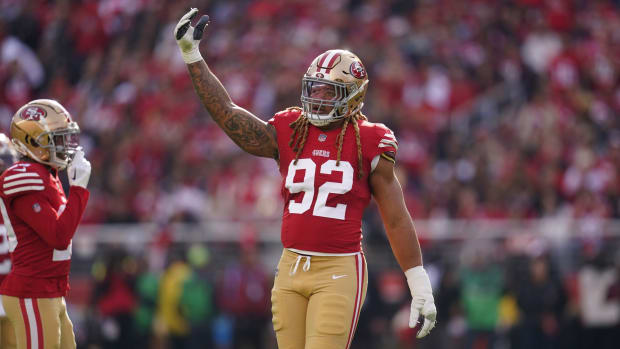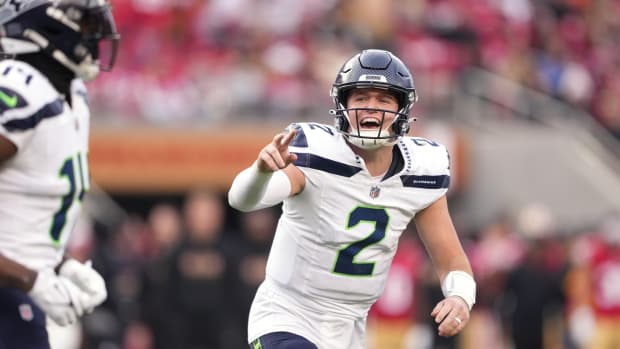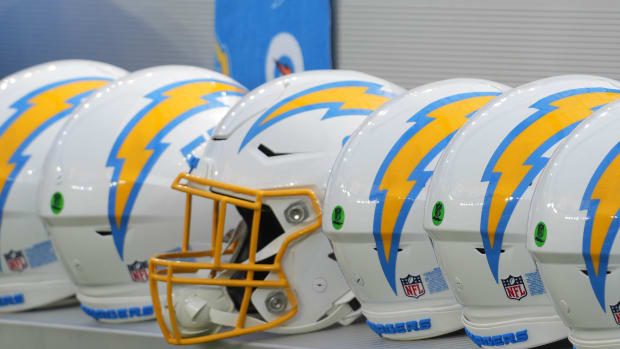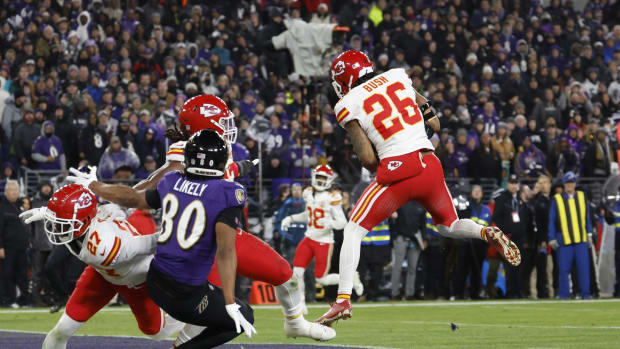Don’t Jump to Conclusions
I believe Tom Brady is better than Peyton Manning, and I have felt that way for a while. I have my doubts about how well Denver will fare in the postseason, because like the 2012 Broncos, 2010 Patriots and Falcons, and 2009 Chargers, they reek of being regular-season flashy good, rather than battle-tested for the postseason. And Manning reminds me a lot of Brett Favre at the end with the Packers, when everyone knew he couldn’t win in the elements.
That being said, a day after the Broncos’ 34-31 overtime loss to the Patriots is not the time to write off Manning. I wouldn’t be throwing dirt on his orange-and-blue coffin quite yet.
In the oft-used words of Packers coach Mike McCarthy: “I think that’s convenient.”
Not that there isn’t ample evidence to do so. The Broncos blew a 24-0 lead. Brady (344 yards, 68% completion rate, 107.4 rating) statistically outplayed Manning (150 yards, 52.8% completion rate, 70.4 rating), and it wasn’t even close. Brady orchestrated five scoring drives in the second half—compared to one for Manning, who threw an interception that led to a go-ahead Patriots touchdown. Bill Belichick took the wind instead of the ball in overtime. Manning looked extremely uncomfortable just taking the field in that weather. Each throw seemed to require a Herculean effort.
Having jumped to a 17-point first-quarter lead, Denver leaned on Knowshon Moreno—and probably should have leaned harder, as New England couldn’t stop him. (Jared Wickerham/Getty Images)
It would be easy to blame Manning. This is a quarterback league, and the best quarterbacks need to play the best in the big games. That’s the conventional wisdom. But that would ignore what actually happened in the game.
For one, the stats were lopsided because the score dictated it. Given the early lead that the defense staked the Broncos, and given the elements, the Broncos made the absolute right decision to go run-heavy. (I actually don’t think they ran enough, considering that the Patriots couldn’t stop them.) That probably hurt Manning a bit in the frigid conditions because his arm didn’t stay warm. After falling behind by 17 points in the first quarter, the Patriots had no choice but to air it out, and Brady was able to get in a rhythm and stay hot. (Not to mention, he throws a better spiral than Manning.)
Brady led one scoring drive of 80 yards, another for 65 and one of 49 yards. Manning: 80, 79 and 50.
The Broncos, already without cornerback Champ Bailey, lost top corner Dominique Rodgers-Cromartie just before halftime. The Patriots have had to deal with as many injuries as anybody, but it’s another thing to deal with a star leaving during the game. In last year’s AFC Championship Game, the Patriots lost cornerback Aqib Talib for the entire second half, and that didn’t work out well for New England after halftime either.
Peyton Manning’s cold-weather discomfort looks a lot like what Brett Favre went through in his final years in Green Bay. (Simon Bruty/Sports Illustrated)
Sure seemed to me that when the Broncos needed Manning in the worst way, he came through: Down seven with 7:37 to go, he led a 10-play, 80-yard scoring drive to tie the game.
On the Broncos’ next possession, they had 3rd-and-10 at their own 44 with 43 seconds left. Manning actually made a good throw—albeit wobbly—to Demaryius Thomas, but the receiver mistimed his jump and couldn’t come down with the pass that was on his hands.
And then the Broncos should have had perhaps the last chance of overtime but couldn’t field a punt.
Denver lost by three points. The game could have gone one way or the other in the final possessions. The Patriots got the bounce, Broncos didn’t. It happens.
Look, there’s no question that if the Broncos have to play in the elements in the playoffs, Manning is going to have a tough time functioning. Favre had a nerve problem in his elbow that got worse as the weather got colder; Manning’s NFL comeback hinged on nerve regeneration. And with the first outdoor cold-weather Super Bowl scheduled for February in New Jersey, maybe this just isn’t Manning’s year.
But what if weather isn’t an issue for the Broncos in the postseason? What if it’s unseasonably warm wherever they play?
You better believe Manning and the Broncos have a shot. They can also take the information gathered from this game and adjust for the next time. That’s why I wouldn’t be so quick to write them off quite yet, as convenient as that may be to do right now.
Extra extra point
Have to disagree with a point The Boss made in this week’s MMQB column when he said, “j. Excellent example of the correct way to pick up a flag in Baltimore. Jets safety Ed Reed crashed into Ravens wideout Jacoby Jones in the end zone, but he hit him absolutely correctly—without the helmet, and below the shoulders.”
Let me first point out that this play doesn’t matter now, since the Ravens went onto win the game. But I have a pet peeve about the rules not being applied uniformly across the league, especially when it comes to quarterbacks and other players.
Jones was a defenseless player on the play. The rule is: “Prohibited contact against a player who is in a defenseless posture is: forcibly hitting the defenseless player’s head or neck area with the helmet, face mask, forearm, or shoulder.”
And the subsequent note: “Note 2: A player who initiates contact against a defenseless opponent is responsible for avoiding an illegal act. This includes illegal contact that may occur during the process of attempting to dislodge the ball from an opponent. A standard of strict liability applies for any contact against a defenseless opponent, even if the opponent is an airborne player who is returning to the ground or whose body position is otherwise in motion, and irrespective of any acts by the defenseless opponent, such as ducking his head or curling up his body in anticipation of contact.”
What I saw on the Reed-Jones play was Reed going high—exactly what the NFL is trying to take out of the game—and contacting Jones’s neck with his forearm.
I don’t understand the non-call. By rule, that should be a penalty. If that hit was applied to a quarterback—who are supposed to be judged the same as defenseless players—there is no doubt that it would get called (unless you’re Jason Campbell of the Browns). Last week 49ers linebacker Ahmad Brooks was flagged for hitting Saints quarterback Drew Brees first in the chest (not going high), and because he hit him so hard Brees’ head came forward, causing Brooks’ arm to travel up to Brees’ neck. It overturned a possible game-winning fumble.
“Brooks clotheslined Brees on a hit that started above the sternum and finished with him forcibly sending Brees to the ground by contacting the neck with his forearm,” Peter wrote last week. “…Brees was tossed to the ground because of a forearm that finished on his neck. I thought the call was obvious.”
This week, Reed hits Jones in the neck, but there’s no flag. The Brooks call was, by rule, correct (although I disagree with the rule itself). Contact to the head and neck area is a no-brainer penalty if it’s on a quarterback. The same protection should go to all the defenseless players, not just the pretty boy quarterbacks.
































